How Facebook scammers target people at risk of suicide
- Published
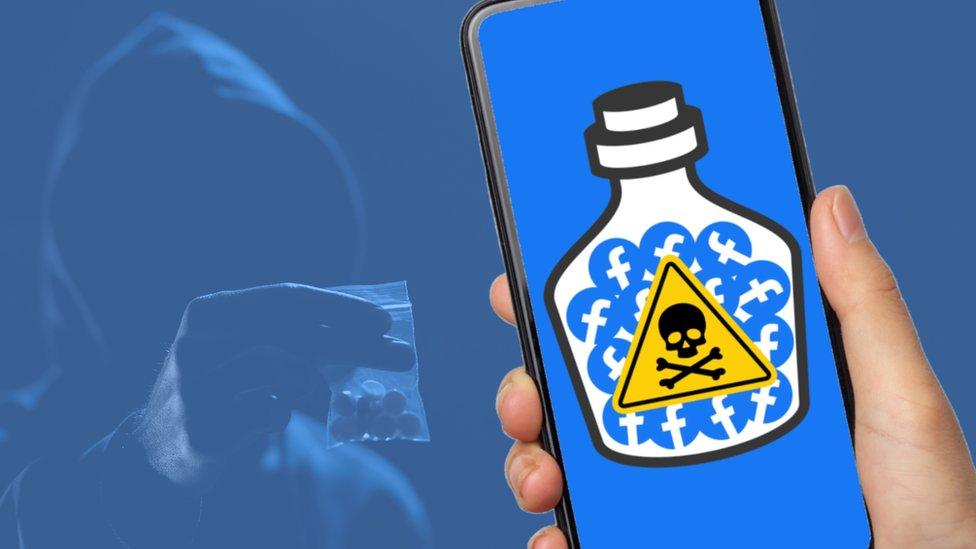
A BBC investigation has uncovered dozens of Facebook pages claiming to sell a deadly poison to people who are contemplating suicide. It's the work of scammers - but how do they operate?
It's late. I open WhatsApp and see a message from the dealer, claiming he can sell me deadly pills.
"Minimum order is 100g and it will cost you £150," he says. "We package discreetly and ship from Douala, Cameroon."
He wants to know where I am and how much I plan to order. I ask him whether the claims made on his page are to be believed: are his pills really lethal?
"It's true, but I hope you really know what you want," he says, "I just sell."
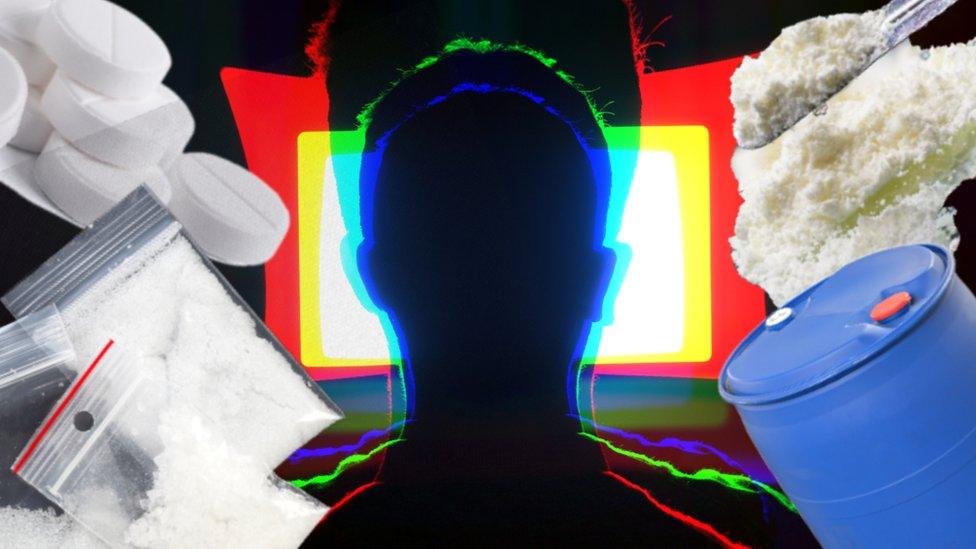
He tells me in great detail how I should use his pills and what they will supposedly do to me. He doesn't ask if I've sought help, try to dissuade me or make me think about the consequences my actions might have on my family and friends.
For him, this is just another transaction.
What he doesn't know is that I have no intention of taking my own life - or even of buying the deadly chemical he claims to be selling.
I already know he is a scammer. For weeks, I have been following his every move, mapping his online presence and investigating his shadowy business dealings.

Information and support
If you or someone you know needs support for issues about emotional distress, these organisations may be able to help.
If you're in the UK, there are other organisations, external available to you.

'We've been doing this for long'
It all started with a video I came across on Facebook, showing someone's hand opening a can containing a plastic bag filled with chunky white pills.
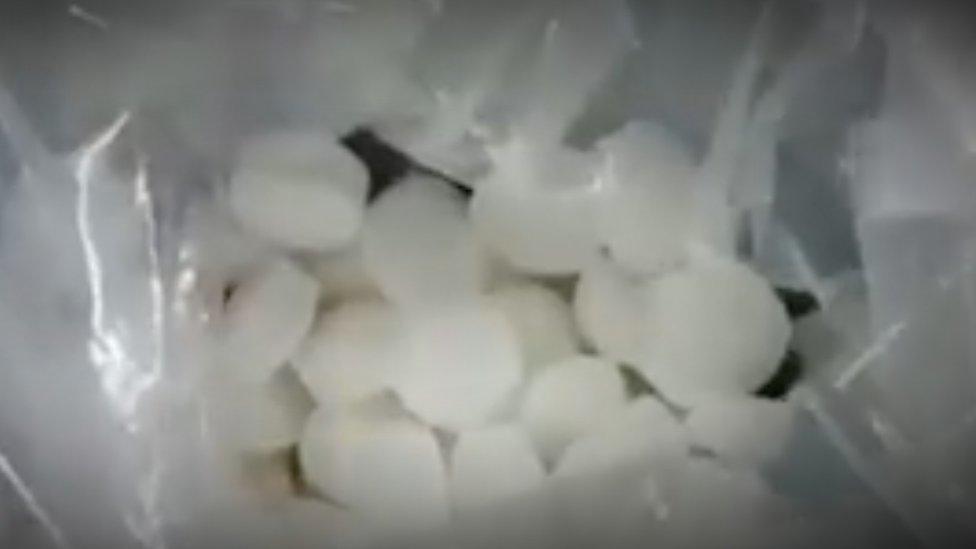
The video supposedly showed deadly pills for sale
The seller was unequivocal on his Facebook page, describing his poison as "99% pure".
The chemical he claimed to be selling - which we have chosen not to name - does have industrial uses, some of which the seller listed on his page.
But among his promises of "competitive prices" and "fast delivery", I also found posts describing how his pills could be used by someone planning to take their own life.
Posing as a potential client, I started texting him. I wanted to see how far his lies would go.
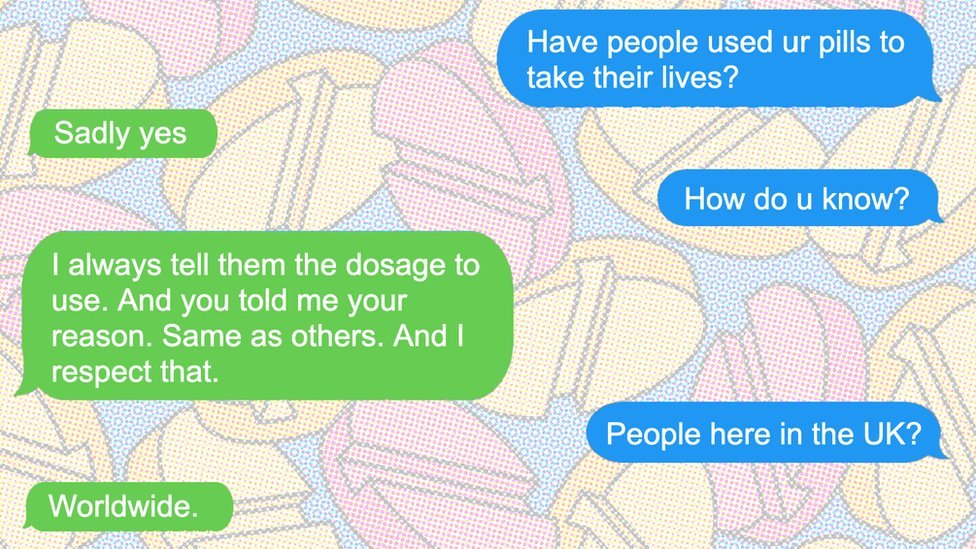
He promised me speedy delivery if I paid him using cryptocurrency - which would help him remain anonymous.
I said I was worried about the legality of the deal: in the UK, it is illegal to sell this particular chemical to anyone who does not hold a Home Office licence. But he told me it was no obstacle.
"We've been doing this for long," he wrote. "Rest assured, you will have your product."
Scam network
At first, I thought the Facebook page was the work of a single fraudulent seller, but it soon became clear he was not alone.
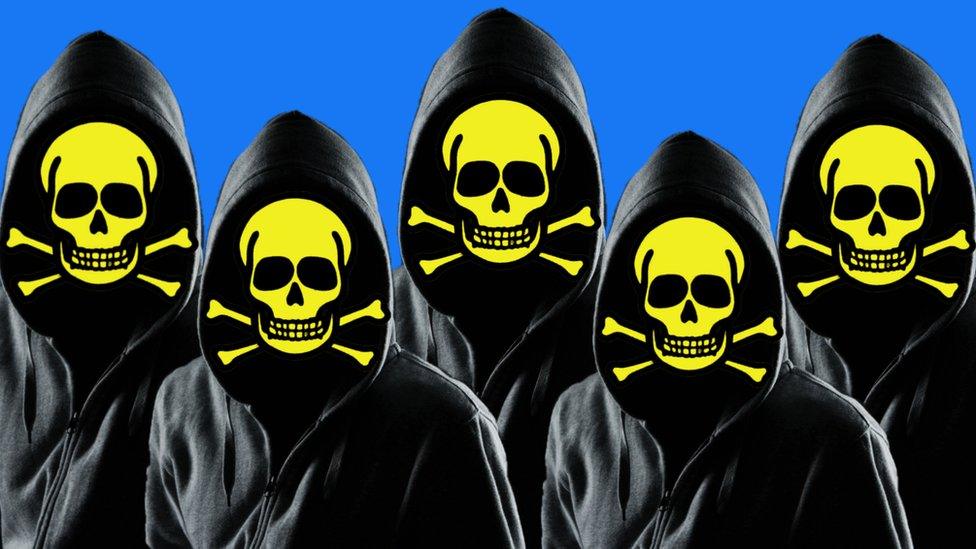
I found more than 60 pages claiming to sell this particular poison, most of them openly promoting the pills as a tool for suicide.
"Are you buying [the pills] because you are tired of this life and you need [them] to end it?" asked one.
What exactly had I found?
"It fits into a wider picture that we're seeing not only with people trying to get access to chemicals and poisons for potential suicidal attempts, but also the wider recreational drug scene," says James Coulson, a reader in clinical pharmacology and toxicology at Cardiff University. "We're seeing a proliferation in the advertising and potential sale of illicit drugs online."
Greater demand for these chemicals would certainly explain the number of pages I was coming across. But, as I looked closer, I saw them for what they were: a scam.
Con artists
I noticed that some of the posts I was seeing (often riddled with spelling mistakes) were repeated verbatim across several pages.
So were the photos - the same shots of powders, bottles, pills, and big blue barrels kept popping up again and again.
Then, bizarrely, I came across a handful of glowing reviews, like this one:
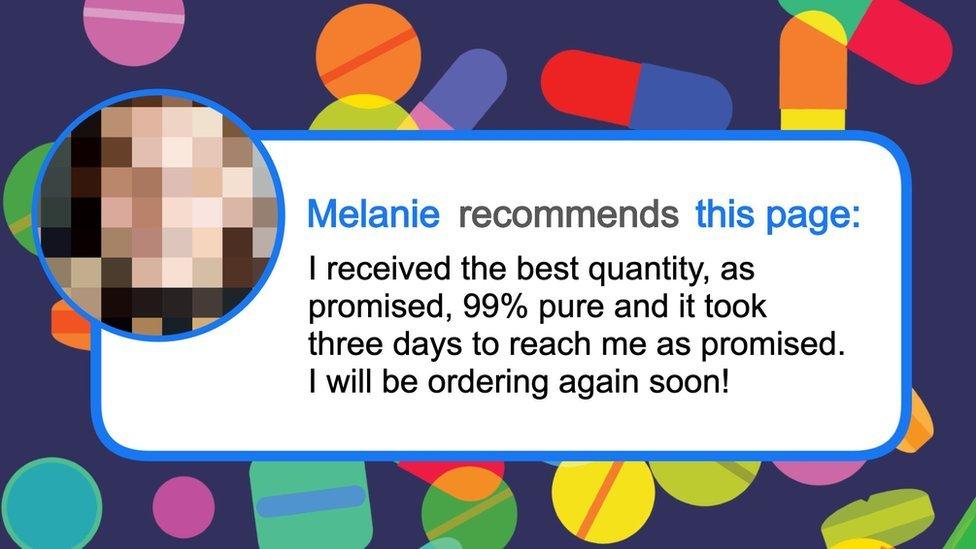
"[The pills] are promoted for suicide," says Lisa Sugiura, senior lecturer at the Institute for Criminal Justice Studies of the University of Portsmouth. "If people are coming back to review it, they're obviously not doing that with the product.
"They're fake accounts."
When I shared the evidence with the experts, their assessment was unanimous: the people running these Facebook pages are almost certainly scammers.
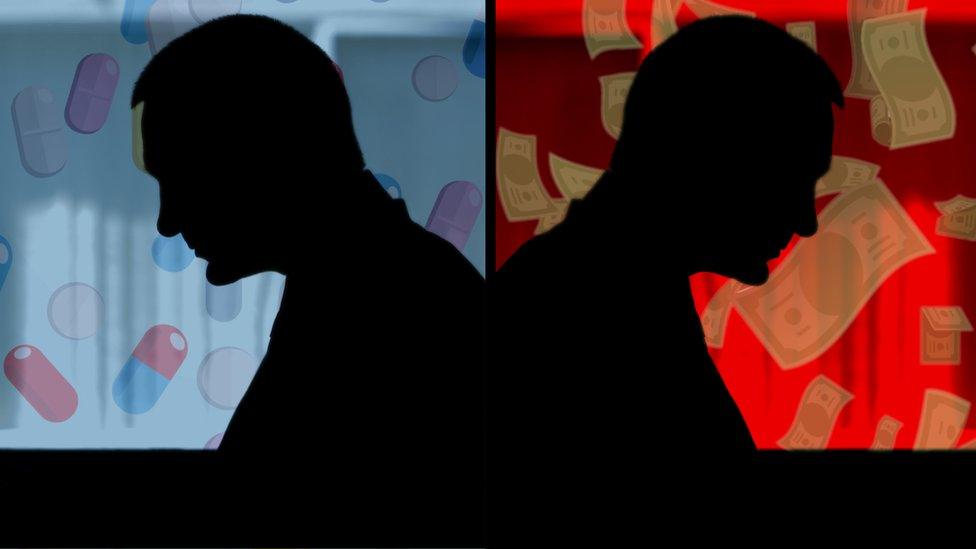
The anatomy of a scam
By creating a page devoted to this poison, the scammer effectively sets up a market stall that can easily be found on Facebook.
People feeling suicidal might search for the chemical and find these pages. But if they pay the sellers, the pills are never actually delivered. The dealer is exploiting vulnerable people for profit.
"It's very unlikely [the victims] are going to report it to law enforcement," says Jake Moore, a former police officer and cyber-security specialist at internet security company Eset.
The buyers might be asked questions they are simply not prepared to answer, such as: why were you trying to buy a deadly, highly regulated poison online?
"[The victims] feel that they're trapped," says Mr Moore. "They don't really know where to turn."

What should you do if you become a victim of online fraud?
Keep all evidence of the offence, including any correspondence.
Source: Action Fraud, external

The confrontation
It was time for me to confront the dealer I had been texting.
After I revealed I was a BBC reporter, he went silent for a few days. But he eventually replied to my texts, claiming - wrongly - that his business didn't break any laws.
He also refused to reveal his identity or the name and physical address of his business (if there ever was one).
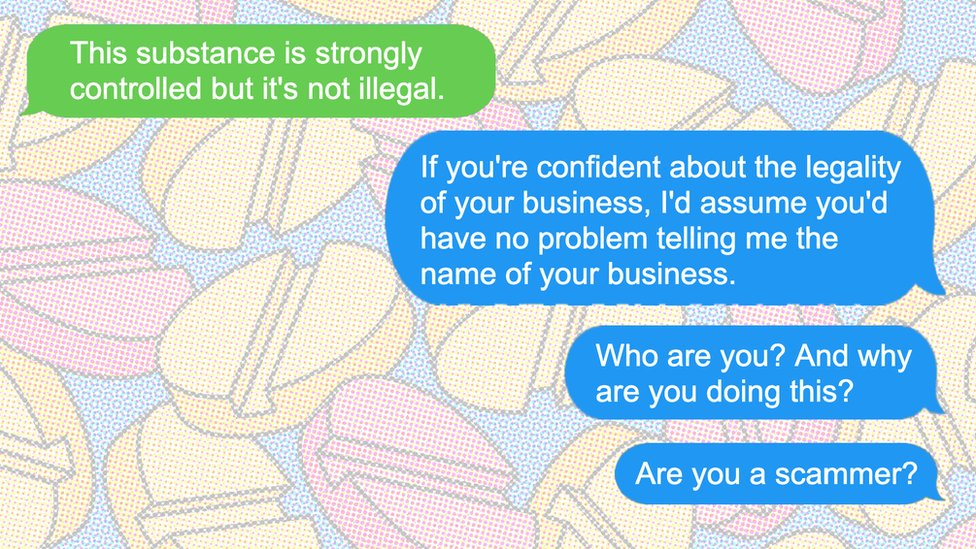
I went to Facebook with the evidence I gathered.
At first, they removed some of the pages and geo-blocked others - meaning that, at least in countries where it is possible to buy this poison without a licence, the pages remained accessible.
But after I asked Facebook for further details, the company changed its mind and removed all the pages.

Listen to this story
Download the Trending podcast from the BBC World Service

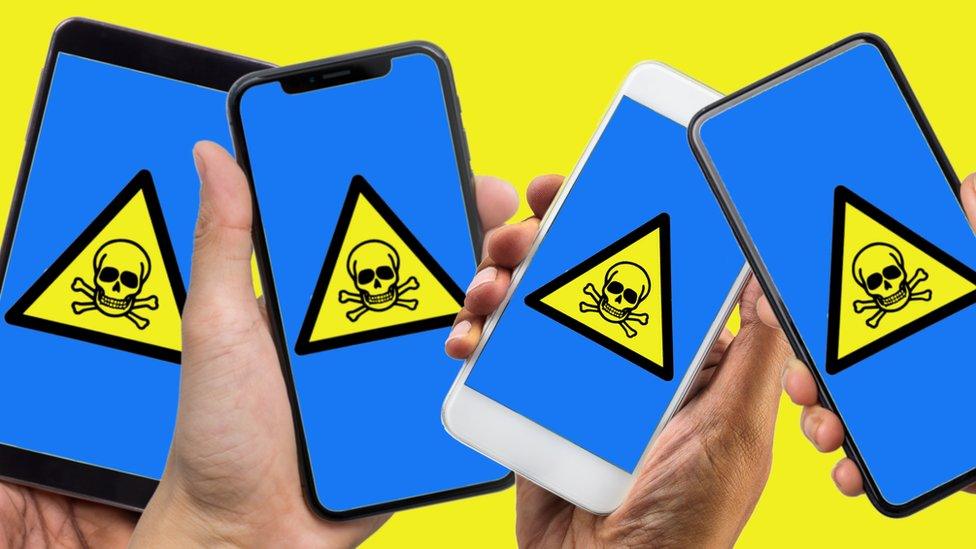
In a statement Facebook said: "We do not allow content on our platform that encourages suicide and we prohibit the sale of drugs of this nature.
"We removed the pages identified by the BBC immediately and carried out a further detailed investigation, removing a number of other violating pages involved in similar activity."
In the UK, the trade of this particular chemical is regulated by the Home Office. A spokesperson said: "The government will not allow criminals to prey on vulnerable people online and tech firms should be responsible for protecting their users.
"We will legislate as soon as possible for a new duty of care on online companies to protect their users from illegal and harmful content."
Not over yet
But Facebook's decision to remove all the pages identified by the BBC hasn't deterred the scammers. New pages claiming to sell the poison have appeared online in recent days.
"[Scammers] don't care if it's taken down," Jake Moore says, "They can just start up another one."
He suggests a technical fix - one that many tech companies use to clamp down on a number of other potentially harmful behaviours.
If Facebook "could take out [the name of the poison] from being used within pages, then you may have a way of eradicating this problem," Mr Moore says.

If you or someone you know needs support for issues about emotional distress, these organisations may be able to help.
If you're not based in the UK, there are other organisations, external available to you.

Is there a story we should be investigating? Email us, external
Follow us on Twitter @BBCtrending, external or on Facebook, external.